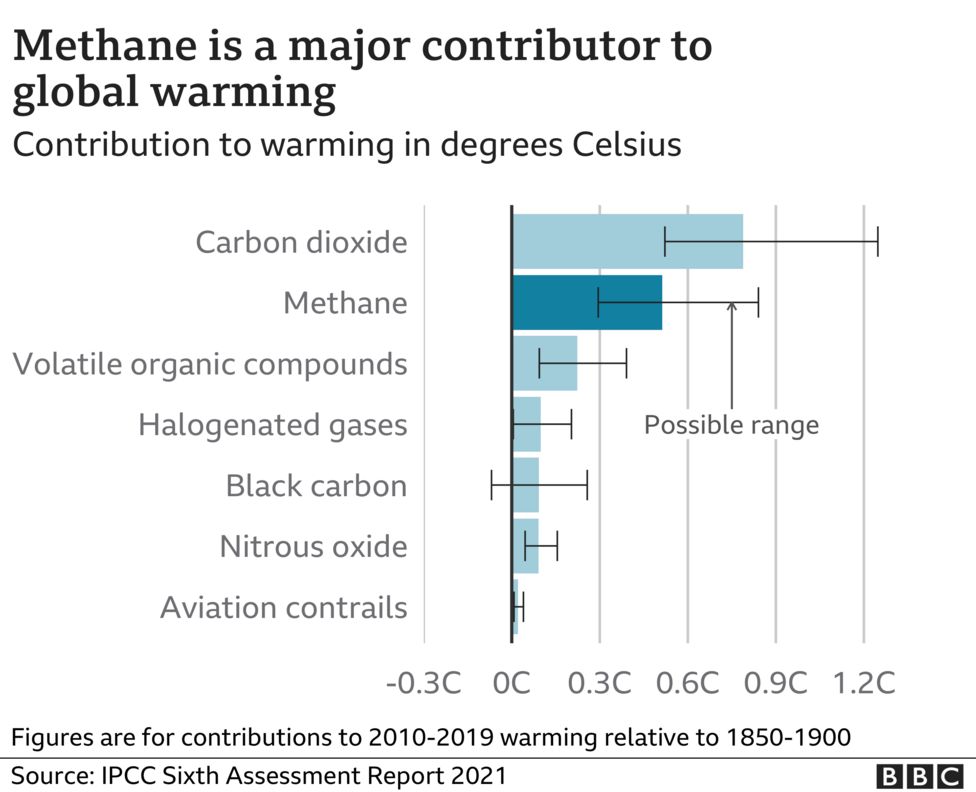
New Zealand might seem to be on the fringe. However, this small island country can occasionally step into the world spotlight – this time with its introduction of the first burp tax for cattle and sheep. That is, as a farmer in New Zealand, you will soon be paying an emission tax on your livestock because they burp.
Cows and sheep burp methane into the air, which is one of the biggest contributors to global warming. Ten million cattle and 26 million sheep live in New Zealand, compared with 5 million people. Nearly half of its emissions, mainly methane, are from agriculture.
It is well known that animals emit methane. The burps of cows alone are responsible for about 40% of those planet-warming gases. A large part of the gas is formed in their stomach, so in their intestines, particularly in the first chamber. Then they burp it.
Methane is found in wetlands, but the majority is emitted by human activities, ranging from cattle and rice production to rubbish dumps.

Methane emissions from agriculture in New Zealand are to be reduced by 24% to 27% by 2050; a decision will be made in December 2022. Until then, the government and farmers have more details to iron out if they intend to move forward with this initiative. Public and agriculture industry representatives will also have a chance to share their views on the proposal.
Farmers whose farms produce gas will be taxed from 2025 under the scheme. Those who reduce emissions through feed additives, however, will receive incentives. Farms can also offset emissions through forestry. According to Reuters, the scheme’s revenue will go toward research, development, and advisory services for farmers.
A final decision is expected by December. If implemented, the new plan will make New Zealand the world’s first country in this respect.

